Lesson No. 4: An Un-holy War Against Social Justice Warriors
This is the fourth in a series of “Lessons Learned as a Young White Pastor in a Majority White Church Pursuing Racial Unity and Multiethnic Ministry in the Bible Belt South.”
Lesson No. 4: An Un-holy War Against Social Justice Warriors
It was around bedtime for the kids. I was in their room, reading a book to Sam and Simone while Abe was playing with trucks. Sprawled and stretched out on the ground like a happy, rested dog. And then the text came. It was from a woman that had been a friend of my wife’s for many years. But a friend that had grown quickly distant since we moved back to Arkansas. I would have been surprised by the text, if not for the fact that we’d seen this snowball rolling for some time. An avalanche was coming. It just wasn’t how we ever envisioned our pastoral ministry among the church that raised us up.
– – –
In our first couple months back, I remember Amy asking me one Sunday after service if I had noticed how people were treating us differently since we’d arrived home. But she was most surprised by those who she’d known and loved for a long time.
We reached out to one of those families. Pursued them. Shared a table. Broke bread. And quickly dove into hard conversations.
This couple had been having a hard time with the way I preached about Jesus as a God who is concerned about us communally, and not just individually. I wasn’t just sharing the gospel message of personal “spiritual” salvation. And that was frustrating. And worrisome.
They also felt like we were focusing too much on race and privilege. And “social justice” as a whole.
Amy and I were open and honest, communicating our convictions without catering to their comfort. We held true to our truth, and aimed to remain composed and kind throughout.
I remember getting back into the car hoping that this couple could grab a glimpse of the Jesus I knew that cared not only about souls, but also bodies. On earth, in and through flesh, as it is in heaven. And not just our bodies — our very beings — but also the collective body. The Body of Christ.
Yet, months later, as I received the text from that friend, I realized just how far the chasm truly was.
– – –
I was tucking the kids in that night. And afterward, I was hoping to spend an hour to myself. Getting my heart ready. Because the next day I would be preaching for the weekend to 100+ students at the Middle School camp where I first heard and received the gospel myself as an 8th grade boy.
But before I could get the kids in bed, the text came:
Hey Bobby, hear you are camp speaker this weekend. I am confident you will do a great job! Praying the Spirit moves thru you to reach the hearts of those kids with God’s love and they are overwhelmed by Jesus sacrifice for them. They find their true value and worth in Him alone.
On a personal note…please please stick with the gospel and leave off the Social Justice Warrior slant. As an adult I struggle with buying into some of what u are preaching friend.
I am trusting my influential child to you to your guidance and teaching. I don’t want him to be indoctrinated to anything but the gospel.
That’s my job! 😉
I wanted you u to know it’s a real concern and hear it directly from me. Please believe it’s shared with love.
– – –
It took me a minute just to get past the winky face emoji. But mama said there’d be days like this. There’d be days like this, my mama said. And mama, therapy, and a whole lot of Jesus had prepared me for days like this.
Deep breath.
Clear reply.
I thanked her for sharing her thoughts, while also telling her they were very hurtful and hard to receive. I let her know we would aim to talk in person after I got back from camp. And that was it.
I had no intentions of diving into critical race theory with energy-drink drunk middle schoolers, but the fact that a congregant couldn’t withhold that punch. They had to share their truth “in love”. But when they said: “please please stick with the gospel and leave off the Social Justice Warrior slant”, here’s what I heard:
– Please don’t share with my middle school son about a God who calls us to seek shalom in our struggling society…
– Please don’t share with my middle school son about a God who calls us to fight for justice in our fractured world…
– Please don’t share with my middle school son about a God who calls us to advocate for equity and equality alongside the marginalized and oppressed…
You see, when we shun terms like “Social Justice Warrior” that shame the good work of God, we fail to see the Gospel thread we’re unconsciously unraveling.
Social. Justice. Warrior. This is a term that followers of Christ stand against?
What then of Micah 6:8?
He has shown you, O mortal, what is good.
And what does the Lord require of you?
To act justly and to love mercy
and to walk humbly with your God.
Is “acting justly” a progressive posture? Or a Godly one?
What then of Matthew 25?
For I was hungry and you gave me something to eat, I was thirsty and you gave me something to drink, I was a stranger and you invited me in, I needed clothes and you clothed me, I was sick and you looked after me, I was in prison and you came to visit me.’
“Then the righteous will answer him, ‘Lord, when did we see you hungry and feed you, or thirsty and give you something to drink? When did we see you a stranger and invite you in, or needing clothes and clothe you? When did we see you sick or in prison and go to visit you?’
“The King will reply, ‘Truly I tell you, whatever you did for one of the least of these brothers and sisters of mine, you did for me.’
Is what we do for the “least of these” not in line with a lived-out Gospel?
What then of Amos 5:24?
But let justice roll on like a river, righteousness like a never-failing stream!
Is standing in the way of justice not equivalent to building a dam against God’s mighty river?
Isaiah 61:8 tells us, “I, the LORD, love justice!” Proverbs 29:7 reminds us: “The righteous care about justice for the poor, but the wicked have no such concern.” Matthew 12:18 shows us about Jesus:
Here is my Servant whom I have chosen, the One I love, in whom I delight; I will put my Spirit on Him, and He will proclaim justice to the nations. A battered reed he will not break off, and a smoldering wick He will not put out, until He leads justice to victory.
As the Body of Christ, are we not to be the hands and feet of Christ here and now? His Kingdom come, on earth as it is in heaven? What kind of discipleship forms followers of Jesus into believing that seeking justice in and among the world we live in (our society) is not something in line with the work of God?
Jesus did not come for the healthy, but for the sick (Mark 2:17). And he believed his missional vocation would be fulfilled through living out the prophetic Isaiah scroll in Luke 4:
“The Spirit of the Lord is on me,
because he has anointed me
to proclaim good news to the poor.
He has sent me to proclaim freedom for the prisoners
and recovery of sight for the blind,
to set the oppressed free,
to proclaim the year of the Lord’s favor.”
Our Savior spoke these words to a people that were actually poor, actually blind, actually oppressed. Do these words also convey an individual, spiritual sense? Of course. But is our faith only limited to God’s work in the individual, spiritual sphere? I don’t believe so.
Anyone working through the gospels or the book of Acts will be surely struck by the communal and physical nature of God’s salvation work as well. In fact, I encourage you, the next time you read through these sacred stories, to keep your eyes on the movement of God among people’s shared lives. Their societies.
Jesus tells us that he is the “Bread of Life”, but he also feeds actual bread to sustain life for a crowd of 5,000 and more. It’s both/and, not either/or. This must be what an actual expression of the gospel lived out looks like among us as well.
When the Apostle Paul calls out Peter in Galatians 2, because Peter abruptly switches seats from sitting among the Gentiles in the lunchroom, to moving among the Jews when they enter the room, what does Paul say to him? He tells this “Rock of the Church” he was not “living in line with the truth of the gospel” as he segregated from the Gentiles and further marginalized them in this new faith family. Was Paul a “Social Justice Warrior” because he advocated for social equity on behalf of his newfound Gentile brothers? I hope by now we could say “yes” to that question, while also seeing with un-scaled eyes that seeking such shalom in the social sphere is also “in line with the truth of the gospel”.
We’re restoring the humanity that’s been stolen by society. Re-envisioning the image of God that’s been shamed by society. Rediscovering the communal calling that’s been suffocated by society.
Surely this is holy work. Surely this is the work of God.
– – –
I spoke that weekend at middle school camp. And I began by sharing the story of the woman at the well in John 4, focusing on the gravity of pain all of us bring to the well when we first encounter Jesus.
And then I turned to the woman caught in adultery, the one set to be stoned in John 8. I highlighted Jesus’ willingness to fight for us, while also recognizing the nature of our shared sin as humans.
But to be honest, it’s impossible for me to teach those stories without also sharing what’s in the text. It was radical for a Jewish rabbi to speak one-on-one with a Samaritan woman in John 4. It was unjust for a woman to be dragged alone to her death in John 8 while not giving the same punishment to the man. The Bible exposes these injustices, and if we have eyes to see, we recognize Christ is not far from fighting for such shalom, but is actually right there at the center of the story. Could this be true for us as well one day?
– – –
A year or so later, I shared this story with a couple of our best friends in California. They’re a Jewish couple who practice hospitality and generosity and loving-kindness like few others I know. And as I stepped into their home, I saw a coffee-book table about the history of those seeking social justice in these United States. Women’s suffrage. Freedom riders. Worker’s rights.
When I explained how this kind of work had been used against me in my ministry back home, they looked at Amy and I with such confusion in their eyes:
“Isn’t this the kind of work Christians are supposed to be all about?”
“Yes, friends. Yes, I believe it is.”
Together, we all shook our heads some more. And then turned the page in the book. Wondering what the next movement for equity would be.


